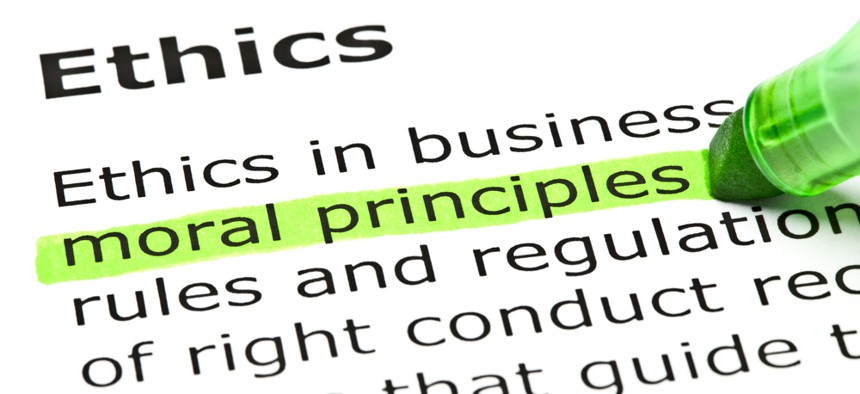
Image via Ivelin Radkov/Shutterstock.com
4 Ways to Spot Ethical Gaps in Your Workplace
When the rules don't apply evenly, they don't apply at all.
If someone asked you to grade your agency on ethics, how would you go about doing it? As leaders, we often believe that because we've provided our employees with compliance manuals we have an ethically educated workplace. If they know the right thing to do, they'll do it, right?
Not always. It's up to leaders to know how to spot ethical lapses and grey areas, and then have a system in place for dealing effectively with them. Leaders may be surprised to learn that the real ethical standards of the company come from leaders themselves--how well they demonstrate and model ethical behavior, reinforce ethical guidelines, and reward ethical decision making among their employees.
Below are five ways to determine if there's a gap between what you believe to be your company's ethics and the actual behavior and attitudes of you and your workforce.
Ethical Standards of Conduct Don't Apply to Everyone Equally.
Do you require that every member of your organization observe the same standard of ethical conduct? You can't punish an employee for cheating on his time log, for example, if you allow a member of your executive team to fudge her travel expense log. Both are forms of theft.
Customers Don't Need to Know How Your Team Makes Decisions Affecting Them.
In business, we often believe that it could be harmful, counterproductive or downright unwise to share our internal processes with customers. However, if there's something you're doing behind the curtain you don't want customers to know about, that's an ethical red flag.
Internal Cooperation Sometimes Trumps Strict Policy Compliance.
If your company culture is such that people believe they can sometimes bend the rules in order to maintain cohesion within the organization, you have a problem. This could lead to employees who report misconduct being retaliated against or viewed as troublemakers.
Management's Demands Can Only Be Met by Violating Policies.
If your management team is making demands that are impossible to meet without employees engaging in questionable behavior--such as skipping product quality checks in order to meet steep deadlines--then you have a definite ethics problem that needs to be addressed.
Try a free assessment here to judge how ethical your oganization is and what you can do to improve it. How ethical is your agency?
Mark Pastin is CEO of the Council of Ethical Organizations, a nonprofit organization dedicated to promoting ethics in business and government. A Harvard-educated ethicist who's received grants from the National Science Foundation and the National Endowment for the Humanities, he's published more than 100 articles and written a new book, "Make an Ethical Difference."
Image via Ivelin Radkov/Shutterstock.com






